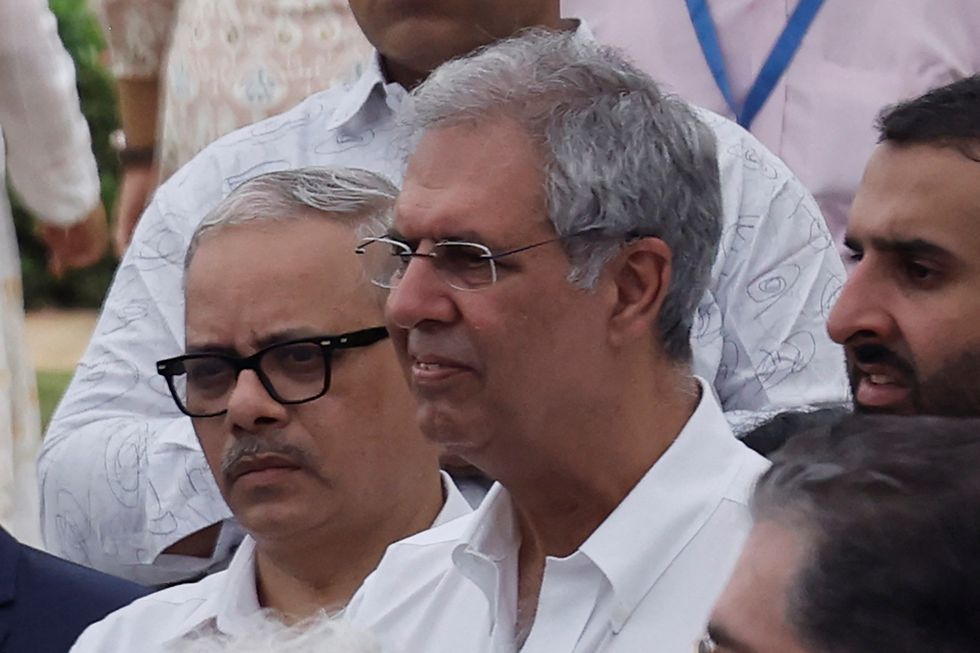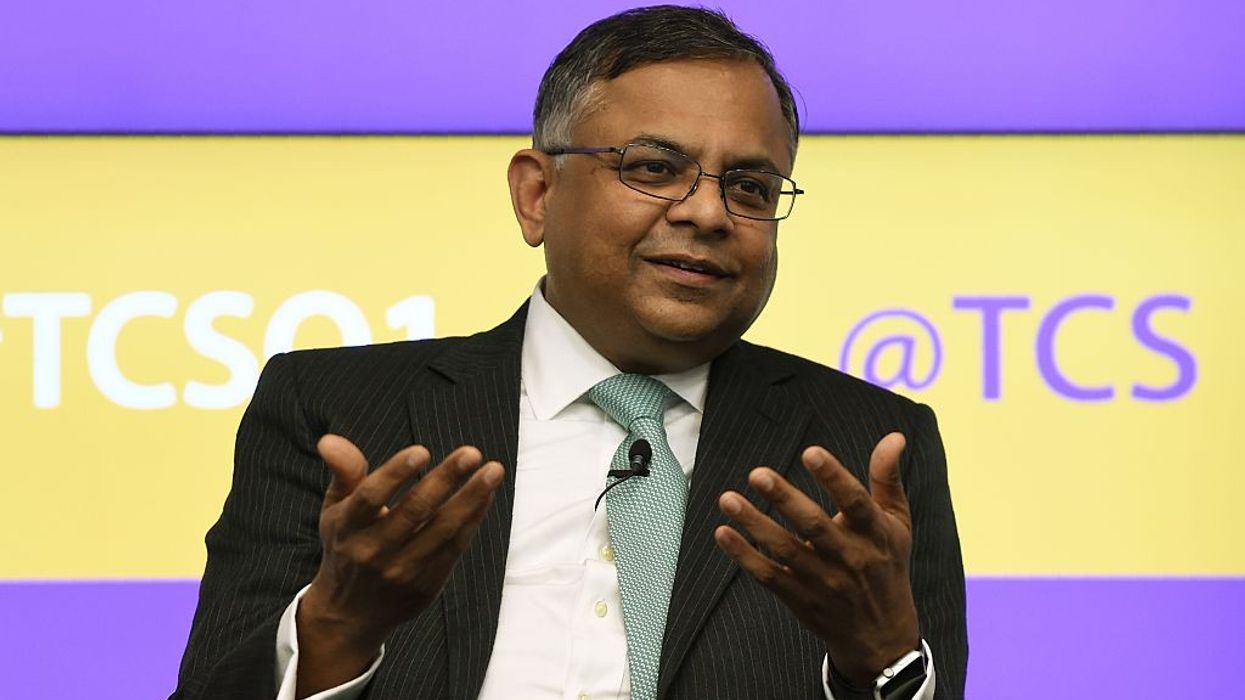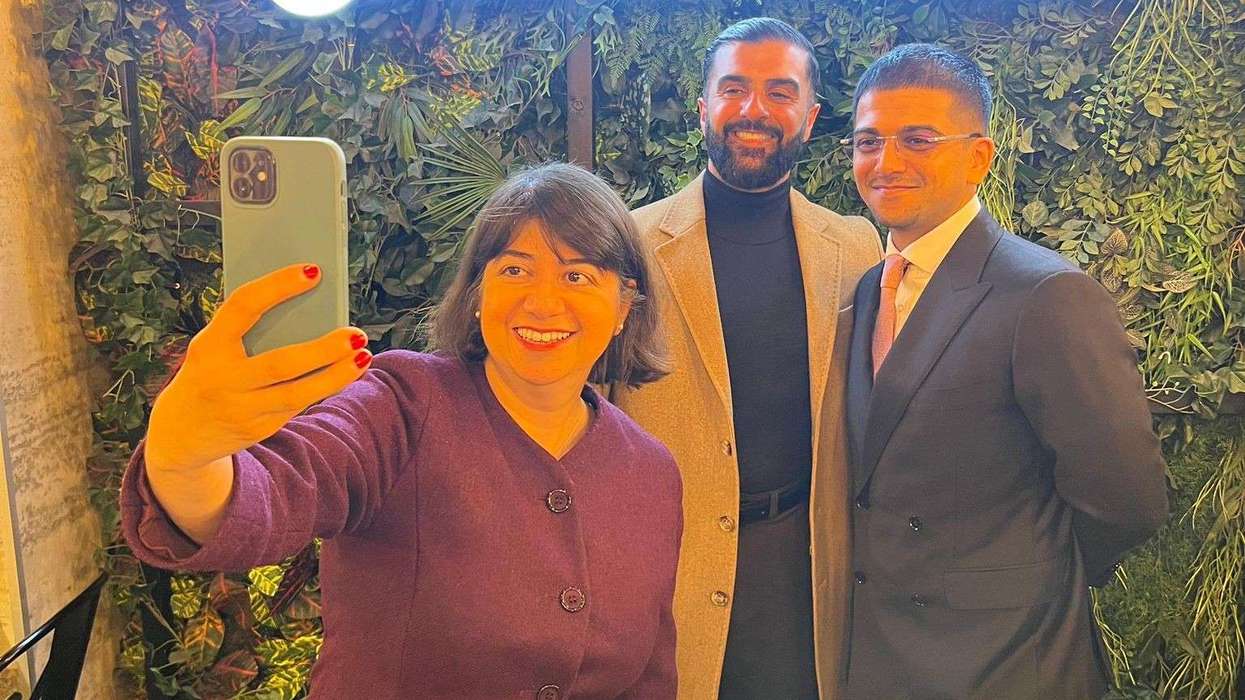INDIA's Tata Group, which owns Jaguar Land Rover and Tetley Tea and assembles iPhones for Apple, is facing a fresh boardroom crisis that has forced the government to step in, the BBC reported.
A year after the death of Ratan Tata, who built the conglomerate into a global enterprise, a power battle between trustees has exposed deep rifts within the £328 billion empire.
Three trustees at Tata Trusts voted on Tuesday (28) to block the reappointment of Mehli Mistry, sources said, effectively ending his role at the organisation.
Noel Tata, who chairs Tata Trusts, industrialist Venu Srinivasan and former civil servant Vijay Singh voted against extending Mistry's term, which expired on October 28.
The decision means Mistry will step down from the boards of two key trusts — Sir Dorabji Tata Trust and Sir Ratan Tata Trust — which together hold 51 per cent of Tata Sons.
The split among trustees has drawn attention because Tata Trusts owns 66 per cent of Tata Sons, the parent company of the vast conglomerate spanning salt to semiconductors.
Three of the six trustees opposed Mistry's renomination, sources said.
The dispute centres on two key issues - how much control trustees should have in making business decisions, and whether Tata Sons — the holding company for 26 publicly listed Tata firms — should be listed on the stock market.

A source close to the group said some trustees want greater influence in strategic decisions at Tata Sons and picking nominees for its board. Tata Trusts has three nominees on the board.
"The Tata Trusts nominees have a veto right in major company decisions, but it is understood that theirs is basically a supervisory role, not an assertive one," the source said. "However now, some of the trustees want more power to make commercial decisions."
The other flashpoint involves the SP Group, the largest minority shareholder in Tata Sons with an 18 per cent stake, which is pushing for the company to go public. Most Tata trustees oppose the move.
"There is fear that going public would dilute the trust's decision-making capacity and long-term focus and expose Tata Sons to quarterly market pressures," the source said. "This is especially because there are so many new businesses at a very nascent stage."
The SP Group has called a public listing a "moral and social imperative" that would unlock value for shareholders and improve transparency.
The Tata Group has a structure where controlling shares of the unlisted commercial holding company are held by a charitable organisation. Experts say this has led to governance problems given its dual non-profit and commercial aims.
Prof Mircea Raianu of the University of Maryland, who has written a history of the corporation, views the conflict as "a resurfacing of unresolved business" — the question of who runs the show at Tata.
The crisis comes as the group faces serious business challenges. It is trying to expand into semiconductors and electric vehicles while attempting to revive Air India following a crash earlier this year.
Publicist Dilip Cherian, who once worked with former Tata Sons chairman Cyrus Mistry, said the conflict had damaged the brand.
"This just adds to the series of blows the Tata image has taken recently," he said, referring to the Air India crash and a cyber attack on JLR which contributed to UK car production falling to a 70-year low in September.
TCS, the software company that contributes nearly half the group's revenues, has also faced challenges including job cuts and the loss of a contract with Marks & Spencer.
"These boardroom battles create further confusion. There will not only be anxiety about share performance, but questions among investors about who exactly they are dealing with at the Tatas," Cherian was quoted as saying.
The tenure of N Chandrasekaran, chairman of Tata Sons, has reportedly been extended despite the turmoil.
Neither Tata Sons nor Tata Trusts responded to questions from the BBC.





